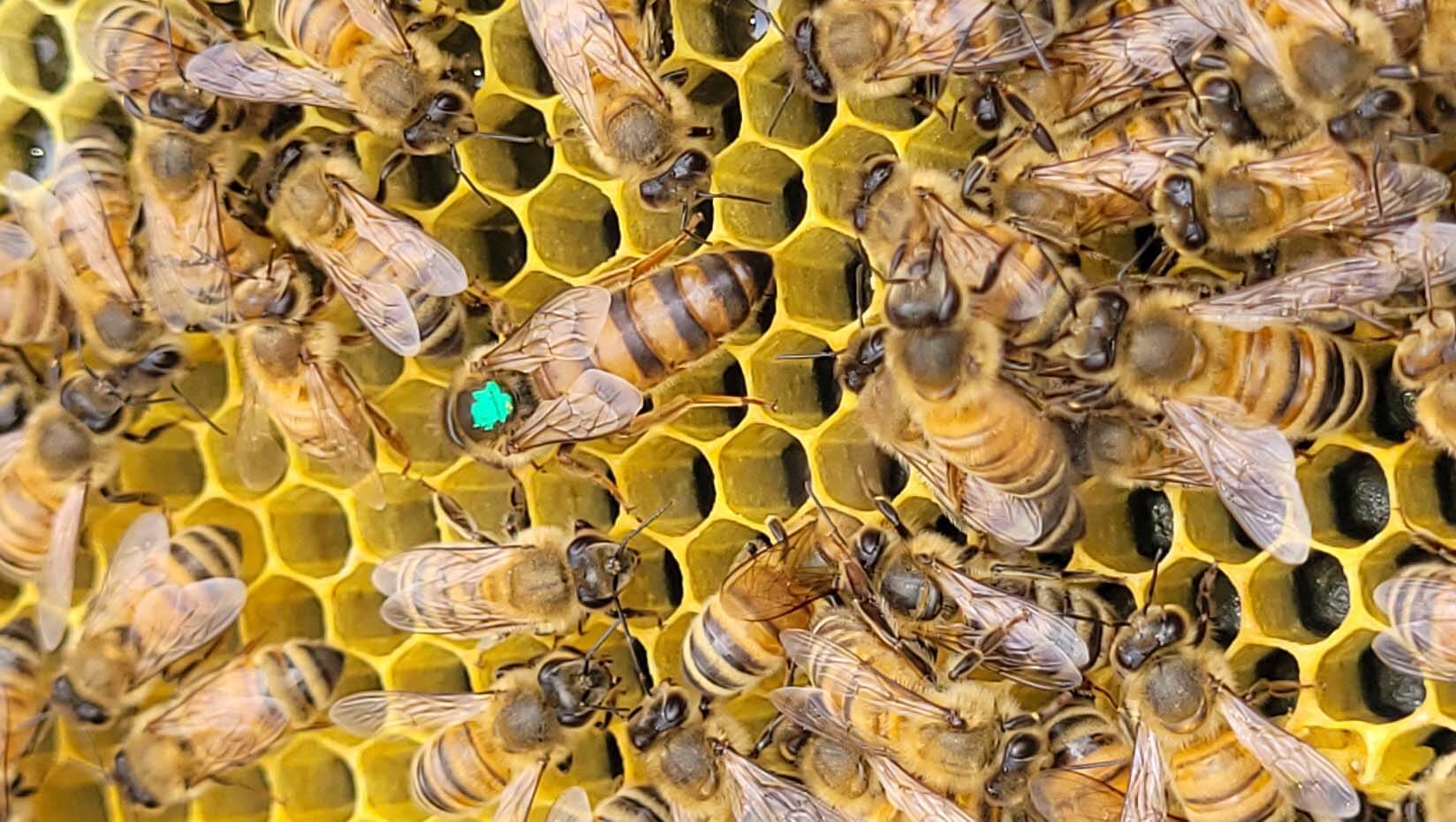
Black Bear Beekeepers join national fight to preserve pollinators
More than 3,600 different species of bees are native to the U.S. Over the past century, their presence has significantly declined due to habitat loss, pesticide use and climate change. Up to 40% of pollinator species are at risk of extinction.
Bees, moths, butterflies and other pollinators provide a key role in every ecosystem by assisting in plant reproduction and supporting the food chain. Without pollinators, humans would lose approximately one third of their food and drinks. And the estimated value of crop pollination in the U.S. is $18-$27 billion annually.
Bee City USA works to conserve native pollinators by increasing the abundance of native plants, providing nest sites and reducing the use of pesticides. The University of Maine received a designation on Jan. 25 from the national organization that establishes it as a Bee Campus USA.
Earning this designation highlights the hard work and dedication the Black Bear Beekeepers club has put into beekeeping. By accompanying the other cities and campuses across the country, the Black Bear Beekeepers are joining the rally to protect pollinators.
Black Bear Beekeepers President Kalina Kinyon said the affiliation with Bee Campus USA benefits the sustainability initiative of the university and boosts its ability to be recognized across the country.
“It also benefits us as a club because we now have access to more native plants that we hope to add to campus,” said Kinyon. “We can work with the groundskeepers here at UMaine to implement pollinator gardens and to make sure that our initiatives are sustainable.”
Kinyon said pollinator gardens are proving to be a challenge to implement because of the number of requirements, but the club still plans to pursue the project along with several others in the coming semester to assist pollinators. They are also implementing student service learning projects related to bees and helping promote new beekeeping classes for the community.
“We’re getting communities engaged on campus and also allowing for a better environment for everyone as a whole,” said Kinyon.
The Black Bear Beekeepers perform different tasks throughout the year to maintain the hives, which fluctuate in activity each season. During the fall months, members attend weekly club meetings and frequent hive meetings. In the winter months, they invite guest speakers to give talks and beekeeping-related lessons. During the busy spring and summer months, the beekeepers who remain on campus work to maintain the hives and check on the bees.
“The main goal of the Black Bear Beekeepers is to promote the education of beekeeping and provide a safe environment for new beekeepers to learn the tricks of the trade,” said Kinyon. “When I became president, I had literally no beekeeping skills. I had never touched a beehive, or been surrounded by bees before. I was just interested, but there wasn’t that much engagement at the time.”
In their weekly meetings, the group has guest speakers who present, in addition to club activities. Kinyon recalled that in one of her first activities the group simulated a bee colony, where club members needed to work together to succeed as a hive.
During hive meetings, club members go into the hives to check on their bees. Most meetings are on campus, but Kinyon said the club will also venture out through an affiliation with the Penobscot County Beekeepers Association.
“They have monthly meetings that we attend,” said Kinyon. “They sometimes bring their hives for a show and tell, which is cool to learn about other beekeepers in Maine and their hives.”
The Black Bear Beekeepers are funded primarily through membership dues, as well as the sale of various products, including honey, lip balm and hand balm. More information is available on the group’s Facebook and Instagram pages.
Story by news intern Wes Brinegar
Contact: Marcus Wolf, 207.581.3721; marcus.wolf@maine.edu
